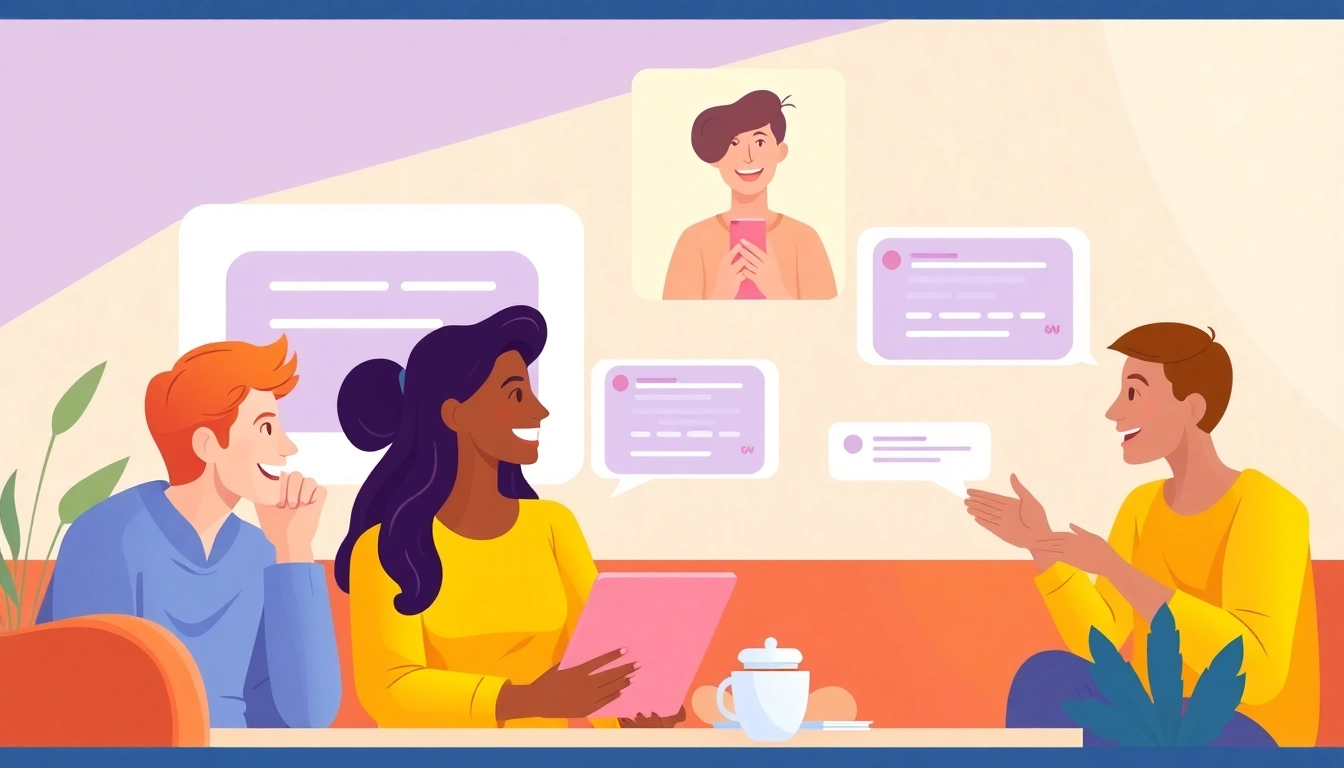Understanding the Dynamics of Relationship Breakup
Breakups are one of the most complex emotional experiences in human relationships. While they signify the end of a partnership, the implications often extend far beyond simply saying goodbye. Understanding the dynamics of a relationship breakup requires examining the triggers, psychological impact, and insights that can assist in navigating this challenging phase.
What Triggers a Relationship Breakup?
Several factors can lead to the end of a relationship, and recognizing these triggers can provide clarity in times of emotional turmoil. Common triggers include:
- Communication breakdown: Poor communication often leads to misunderstanding and resentment, prompting one or both partners to reconsider the relationship.
- Loss of intimacy: Emotional and physical intimacy is vital for most relationships. A significant drop in intimacy can create a rift that feels insurmountable.
- Unresolved conflicts: Continuous arguments or unresolved issues can build stress and erode patience, leading to a breakup.
- Life changes: Changes in career, location, or personal growth can lead to couples drifting apart as their paths diverge.
- Lack of shared goals: When partners no longer share the same life goals—a desire to marry, have children, or pursue a certain lifestyle—it can create tension.
The Psychological Impact of a Relationship Breakup
The end of a relationship can trigger a complex array of emotions, similar to grieving a loss. Understanding these psychological impacts can help individuals navigate their feelings more effectively.
Many experience feelings of sadness, anger, loneliness, and even guilt. The psychological process may be categorized into several stages akin to grief, commonly referred to as the Kübler-Ross model: denial, anger, bargaining, depression, and acceptance. Each of these stages presents unique challenges:
- Denial: Initially, one might refuse to accept the breakup, hoping for reconciliation.
- Anger: It’s common to feel anger towards oneself, the ex-partner, or the situation.
- Bargaining: Individuals may attempt to negotiate their way back into the relationship, seeking ways to change circumstances.
- Depression: This stage may involve withdrawal, sadness, or even signs of clinical depression if emotions are not adequately processed.
- Acceptance: Coming to terms with the situation, leading to personal growth and future relationship readiness.
Common Misconceptions About Relationship Breakup
Misconceptions about breakups often hinder the healing process. Some common myths include:
- It’s always mutual: Not every breakup is a mutual decision; often, one party feels the impact more intensely than the other.
- You need closure: While closure can be helpful, it’s not always necessary for healing—many find peace without it.
- Time heals all wounds: While time is important, actively processing emotions is crucial for healing.
- Once a relationship ends, healing is linear: Healing from a breakup is not a straight path; there will be ups and downs.
- I’ll never love again: New relationships can be fulfilling and healthy, provided one takes time to heal first.
Preparing for a Relationship Breakup
When it becomes clear that a relationship breakup is imminent, preparation can ease the transition. Here are some steps to consider:
How to Approach the Conversation
Initiating a breakup is rarely easy, but approaching the conversation with sensitivity can mitigate the emotional fallout. Consider the following tips:
- Choose the right setting: A private, quiet location where both parties feel comfortable can make the conversation less stressful.
- Be honest yet respectful: Clearly explain your reasons without resorting to blame. Aim for clarity while being compassionate.
- Be prepared for emotions: Understand that the other person may respond with a range of emotional reactions; respond with empathy.
- Set a timeline: If applicable, share how you envision the breakup process flowing, whether it’s immediate or gradual.
Identifying Your Needs Before a Relationship Breakup
Before proceeding with the breakup, reflect on your needs and desires. This self-awareness can guide the breakup discussion and subsequent actions. Consider these questions:
- What are my core values that this relationship does not fulfill?
- How do I envision my future without this partner?
- What support systems do I need during this transition?
The Importance of Timing in a Relationship Breakup
Timing can significantly influence the outcome of a breakup. Consider the following points when deciding when to initiate a breakup:
- Avoid high-stress periods: Break up during a time when both parties are relatively calm—important life events (work stress, family issues) can complicate emotions.
- Consider relationship longevity: A longer commitment may warrant a more thoughtful approach and timing.
- Mutual feelings: If either party has recently expressed love or contentment, it may be more jarring for them to hear that a breakup is imminent.
Emotional Aftermath of a Relationship Breakup
Once a breakup occurs, individuals must address the emotional aftermath, which often involves navigating grief, coping mechanisms, and signs of emotional distress.
Normalizing Grief Post-Relationship Breakup
Grieving after a relationship breakup is entirely normal. Recognizing that this process is a legitimate emotional experience can foster healthier coping mechanisms. Reacting to a breakup isn’t confined to sadness; individuals may feel anger, regret, or relief—each phase is valid.
Healthy Coping Mechanisms After a Relationship Breakup
Adopting healthy coping mechanisms can assist in the healing process. Consider these strategies:
- Engage in physical activities: Exercise can be a powerful stress reliever and mood booster.
- Practice mindfulness: Techniques such as meditation or deep-breathing exercises can help reduce anxiety and foster emotional recovery.
- Establish a support network: Surround yourself with understanding friends and family who can offer emotional support.
- Avoid unhealthy distractions: While binge-watching shows or overindulgence can provide temporary solace, it’s essential to address feelings head-on.
Signs You’re Struggling to Move On From a Relationship Breakup
Recognizing when you are struggling after a breakup is crucial for seeking the appropriate support. Watch for signs such as:
- Constant thoughts about the ex-partner or the past relationship.
- Difficulty engaging in daily activities or socializing.
- Feelings of hopelessness or persistent sadness.
- Ruminating on blame or criticism of oneself or the ex.
Moving Forward After a Relationship Breakup
After processing the breakup, individuals need to focus on moving forward. This transition can involve setting boundaries, finding closure, and embarking on a journey of self-discovery.
Setting Boundaries with Your Ex After a Relationship Breakup
Setting boundaries is vital for personal health and clarity post-breakup. Here are some approaches:
- Limit communication: Consider creating some distance to gain perspective.
- Clarify expectations: If further communication is necessary, be clear about the purpose of engagement.
- Respect personal space: Avoid intruding on each other’s lives through social media or mutual friends until both parties are ready.
Finding Closure: Steps to Heal After a Relationship Breakup
To fully heal, finding closure can provide peace. Consider these steps:
- Reflect on the relationship: Analyze what worked and what didn’t, helping identify future needs in a partner.
- Write a letter: Even if it’s never sent, writing a letter to your ex can allow for emotional expression and closure.
- Seek counseling: Professional guidance can offer tools and insights that facilitate deeper healing and understanding.
The Role of Self-Discovery After a Relationship Breakup
A breakup can serve as a valuable period for self-discovery. Take time to explore:
- Your passions and interests that may have been sidelined.
- Setting personal goals that focus on self-improvement and fulfillment.
- Establishing new boundaries and healthy habits to support future relationships.
Supporting Others Through a Relationship Breakup
Being supportive when a friend is going through a breakup can be incredibly beneficial. Providing comfort, effective communications, and encouraging healthy self-care can all aid in their healing.
How to Offer Comfort to Friends Experiencing a Relationship Breakup
When supporting a friend through this trying time, consider:
- Listening attentively: Allow your friend to share their feelings without judgment.
- Validate their emotions: Reassure them that their feelings are normal and valid.
- Suggest activities: Engage them in activities they find enjoyable to provide distractions and encourage engagement.
Communicating Effectively About a Relationship Breakup
When discussing the breakup, aim for open and constructive communication. Strategies include:
- Ask open-ended questions: This encourages deeper conversations about feelings.
- Encourage honesty: Ensure the friend feels safe to express what they’re experiencing.
- Avoid clichés: Phrases like “There are plenty of fish in the sea” may not be helpful; focus on empathy instead.
Encouraging Self-Care in Those Dealing With a Relationship Breakup
Promote self-care habits through:
- Encouraging physical activity: Suggest they take walks, join exercise classes, or engage in outdoor activities.
- Promoting relaxation techniques: Help them explore mindfulness, journaling, or other activities to unwind.
- Recommending professional help: If they struggle significantly, discussing the option of therapy could help restore emotional balance.



